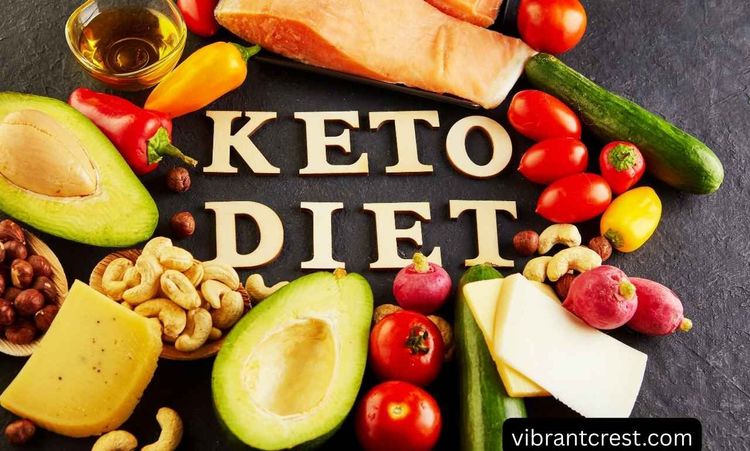Walk through any supermarket, and you’ll notice the freezer aisle stretching longer every year. It’s not just for ice cream anymore. Frozen vegetables and fruits are claiming more space, and for good reason.
Some people still see them as the “lazy” option. Others worry about lost nutrition. But here’s the twist—frozen produce often beats fresh in surprising ways. With modern freezing methods, what you get isn’t a compromise but a smart alternative.
This article unpacks 5 Reasons To Use Frozen Vegetables & Fruits, cutting through myths and spotlighting real benefits. If you care about health, your wallet, and your time, keep reading.
Peak Nutrient Preservation
Fresh produce sounds like the gold standard. It’s picked from the field and placed in your basket. But the journey from farm to kitchen isn’t instant. Spinach can lose nearly half its vitamin C within a week in the fridge.
Frozen vegetables take a different path. They’re usually harvested at peak ripeness and frozen within hours. That quick freeze locks in nutrients that would otherwise fade. In some cases, frozen peas or broccoli carry more vitamins than their “fresh” counterparts sitting for days in a store.
Think about berries. Strawberries shipped across continents spend days in storage and transit. By the time they reach your plate, they may look fine but have lost part of their antioxidant punch. Frozen berries, sealed and stored cold, keep those antioxidants stable for months.
This is where science meets practicality. Freezing stops the natural breakdown process, meaning what you buy today tastes and nourishes much like the day it was harvested. If nutrition matters to you, frozen is not second-rate—it’s often a safer bet.
Reduce Food and Money Waste
We’ve all done it—bought a bag of fresh lettuce with the best intentions, only to find it slimy days later. Wasting food feels frustrating, and it adds up. Studies suggest households throw away hundreds of dollars’ worth of spoiled produce each year.
Frozen vegetables and fruits solve much of this problem. Because they last months, you only use what you need. Leftovers stay sealed in the freezer, waiting for your next recipe. No more guilty glances at a moldy cucumber or mushy bananas.
There’s also the financial angle. Buying frozen can stretch your budget further. Instead of replacing spoiled produce every week, you shop once and stretch those items across many meals. That reduces waste and lowers grocery costs in the long run.
Another benefit comes with flexibility. Plans change. Maybe you don’t cook that stir-fry tonight. With frozen bell peppers, there’s no pressure—they’ll still be good when you need them. Less waste, more savings, and fewer stressful shopping trips.
Year-Round Availability
Seasonality makes fresh produce exciting but also frustrating. Fresh corn is glorious in midsummer, yet in winter, it’s either expensive or flavorless. Strawberries may taste perfect in June, but by December they look pale and taste watery.
Frozen foods break that cycle. Want blueberries in January? The freezer section has them. Craving asparagus in the middle of autumn? Frozen packs make it possible. Freezing allows farmers to capture the best of each harvest and make it available all year long.
This global reach widens options for home cooks. Someone living far from tropical climates can enjoy mango chunks or pineapple pieces whenever they want. Frozen availability erases geographical and seasonal limits.
It also means consistency in flavor. Instead of paying premium prices for imported strawberries that taste like cardboard, you can enjoy frozen berries picked at their prime. For anyone who values variety in meals, the freezer aisle is a treasure chest.
Convenience
Let’s be honest—most of us are busy. Between work, commuting, and family life, chopping vegetables can feel like another chore. Frozen produce helps lighten the load.
Most frozen vegetables are already washed, peeled, and chopped. That’s minutes saved every evening. A bag of frozen carrots skips peeling altogether. A pouch of spinach is prewashed and ready for the pan. This simplicity means meals come together quicker, reducing kitchen fatigue.
Frozen fruit is equally handy. Toss mango chunks into a blender for a smoothie, or sprinkle frozen raspberries over yogurt. There’s no mess, no sticky cutting boards, no cleanup.
Storage adds another layer of convenience. Frozen items don’t hog counter space or spoil in the fridge. You stock the freezer once and cook from it for weeks. That’s a lifesaver during hectic schedules or unexpected delays.
And here’s something parents will appreciate—kids often want snacks fast. With frozen fruit on hand, you can serve something nutritious within seconds. No excuses, no fuss, no compromise on quality.
No Additives (If You Choose Wisely)
Many people assume frozen means chemical-laden. In reality, freezing itself is the preservative. The majority of plain frozen fruits and vegetables contain nothing extra. No salt, no sugar, no mystery ingredients—just produce.
That said, labels matter. Some brands sneak in sauces, syrups, or seasonings. Choosing wisely makes all the difference. Look for packages that list only the vegetable or fruit as the ingredient.
Frozen spinach, broccoli, or berries usually come clean and pure. Smoothie packs often offer a mix of fruits with nothing added. These options give you convenience without compromising health goals.
For those following strict diets or simply preferring minimal processing, frozen foods are a reliable ally. You get all the freshness locked in, minus the preservatives that often accompany canned alternatives. It’s proof that convenience doesn’t need to clash with nutrition.
Conclusion
Frozen vegetables and fruits have moved far beyond backup status. They are nutrient-packed, reduce waste, provide year-round access, and make meal prep easier. When chosen without additives, they rival fresh produce in purity and quality.
In kitchens worldwide, freezers now serve as allies in smarter eating. They save money, time, and effort while ensuring meals remain wholesome. Convenience doesn’t have to mean compromise, and frozen foods are proof.
Next time you stroll through the grocery store, don’t skip the freezer aisle. Think of it as your year-round farmers’ market—conveniently preserved for when you need it most.




